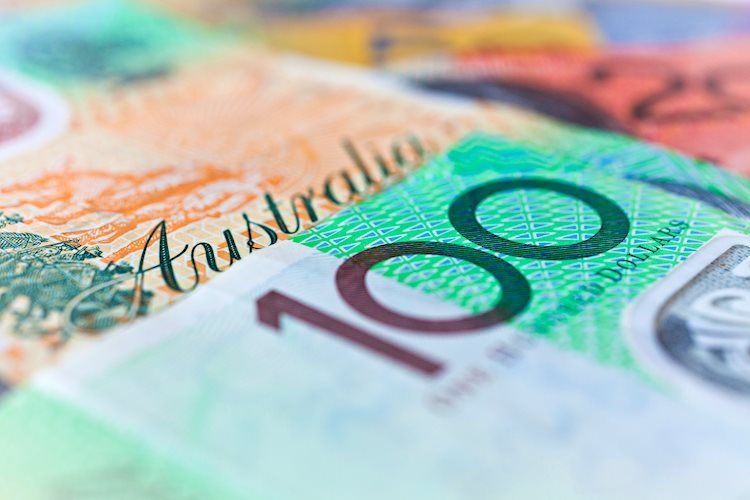
- The Australian Dollar got bolstered by China’s upbeat GDP and improvement in Australia’s consumer sentiment.
- New York Fed Empire State Manufacturing Index plunged as business conditions deteriorated, augmenting speculations for a Fed pivot.
- AUD/USD traders are eyeing Fed speaking, US PPI, Retail Sales, and Australia’s employment data.
The Australian Dollar (AUD) is trimming some of its Monday’s losses and rising due to an offered US Dollar (USD) across the board, despite a dampened market mood surrounding Wall Street. US corporate earnings would likely continue to drive the market sentiment amidst the lack of tier 1 data. At the time of writing, the AUD/USD is trading at 0.6974.
AUD/USD climbs but fails to crack 0.7000
Wall Street continues to lose traction as sentiment turns sour. US data released ahead of the US cash market equities open showed that Manufacturing activity in New York plunged to its lowest in January, as reported by the New York Federal Reserve (Fed). Delving into the report, business activity contracted sharply, with the index falling 22 points to -32.9. The report showed that new orders and shipments declined substantially, while delivery times were unchanged and inventories aimed higher.
The softer-than-expected data spurred a jump in the AUD/USD pair, reaching a new daily high of 0.6993, before retracing some of its gains. Meanwhile, the US Dollar Index, which tracks the buck’s value against a basket of six currencies, retraces 0.11%, down at 102.448, undermined by falling US Treasury bond yields.
On the Australian side, upbeat data from China, mainly the Gross Domestic Product (GDP) beating expectations of 1.6%, at 2.9% for Q4, bolstered the Aussie Dollar (AUD). Regarding the annual based data, China’s GDP came at 3%, well below the Communist Party’s 5% projection, and trailed 2021 by 8.1%.
Even though China’s data for the entire year disappointed, its reopening is being cheered by market investors, as the Hang Seng has risen almost 14% since the beginning of 2023. Further, the release of Australian consumer sentiment improved for the second consecutive month at 5.0%, vs. 3.0% in December.
Ahead of the week, the US economic docket will feature the New York Fed President John Williams, crossing newswires Tuesday. On Wednesday, the calendar will feature Retail Sales, prices paid by producers (PPI), and further Fed speaking.